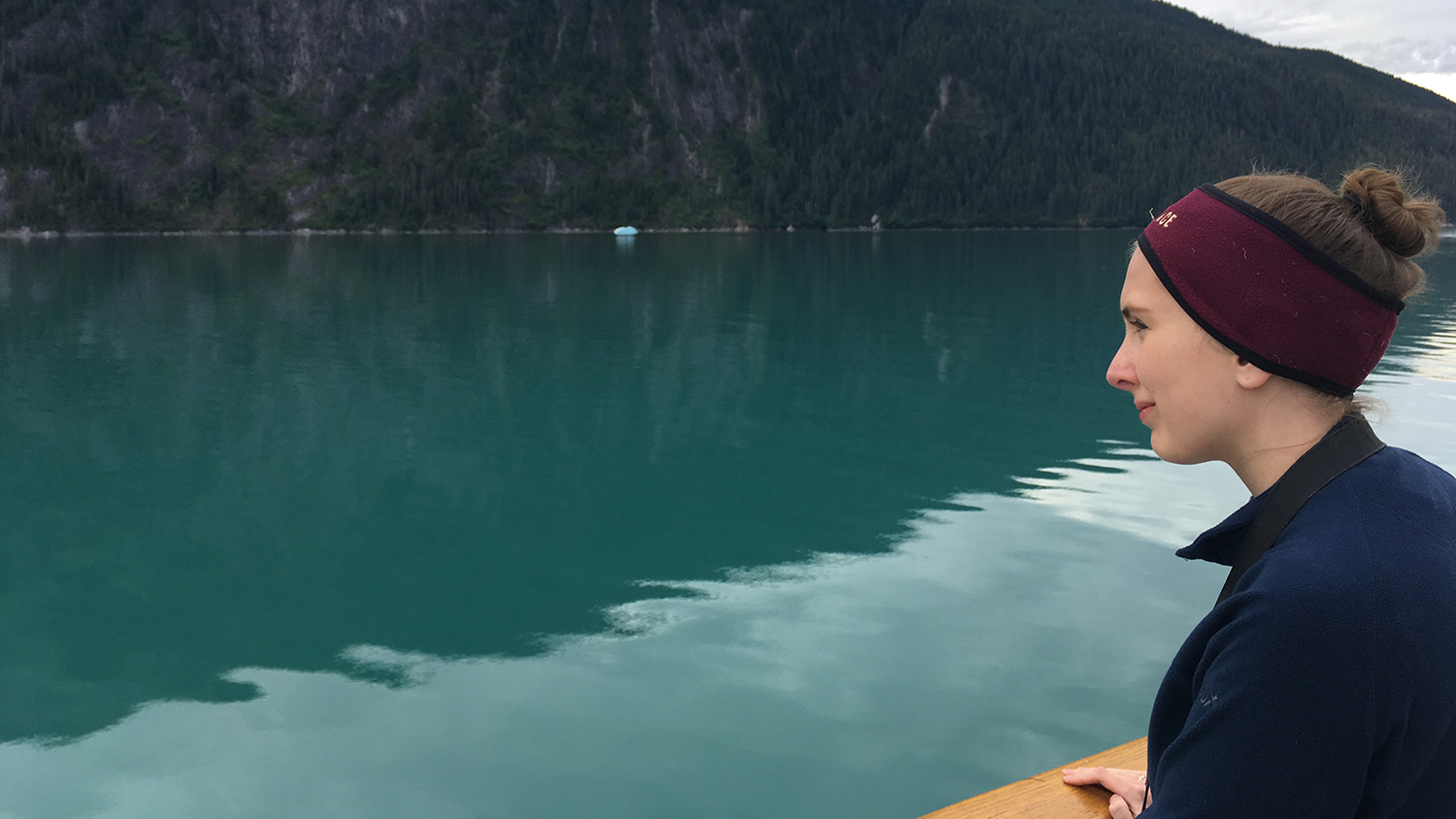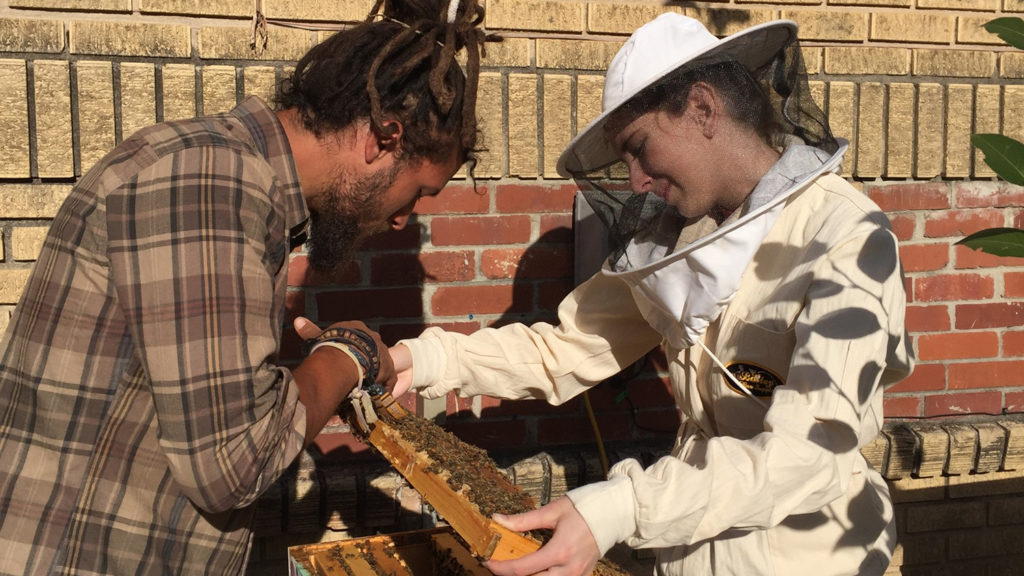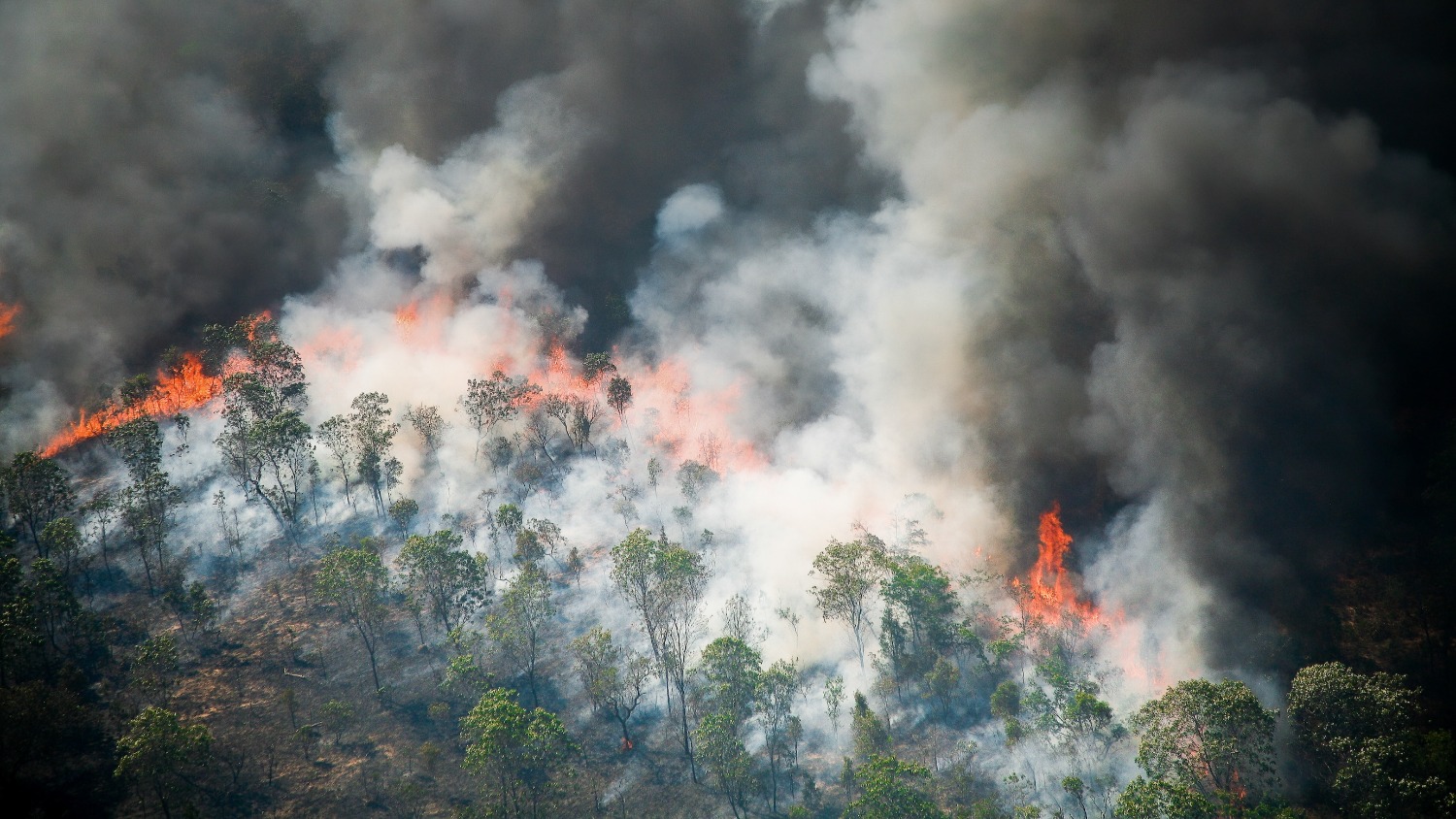NC State Undergraduate Research in Conservation Provides Unique Opportunity to Student

By age 15, Kirsten Keleher had already assisted in graduate student-level research. She was taking online classes for high school and looking for opportunities to get out of the house and into a research lab. “I grew up just really excited to work in my first lab, and I wanted that to be as soon as humanly possible,” she said.
She found the Rob Dunn Lab at NC State, which at the time was researching urban bee flight. Pollinators like bees are responsible for nearly one of every three bites of food we take, according to a recent NPR report, but colonies are quickly declining. The lab’s researchers were analyzing the morphology and adaptability of bee wings to urban environments.
After analyzing and cataloging dozens of bees, Kirsten’s team found that bees have not yet adapted to the urban environment, meaning the selection pressures bees are facing are not strong enough to force them to significantly adapt. As our world becomes increasingly urbanized, this gives the research team hope that bees can continue to work in changing environments and provide us with essential pollination.

Because she grew up with a love of nature photography and bees, Kirsten felt lucky to have her first lab position working with bees and conservation. She acknowledged the unique experience she had working in a lab at such a young age: “That was just really exciting, to have my name on a paper as a freshman in college for work I did as a sophomore in high school.”
The team published their article, “Do Bee Wings Adapt for Flight in Urban Environments?” in the Southeastern Naturalist journal in May 2019.
I got involved in this project in my sophomore year in high school because I always knew I wanted to go into science and it was pretty much between astrophysics and conservation at that point…I realized I care a lot more about this planet than looking at other ones.
Now a sophomore in the College of Natural Resources’ Fisheries, Wildlife and Conservation Biology program, Kirsten continues to look for new research opportunities. She recently worked at the NC Museum of Natural Sciences’ Biodiversity Lab with College of Natural Resources’ professor Roland Kays, where she assisted in two research studies using data from camera traps.
In one study, the team set up a variety of environments to determine if raccoons are able to feel disgust. Another study is currently analyzing whether novel objects like pink plastic flamingos in yards disrupt the natural behaviors of native North Carolina wildlife.
Additionally, Kirsten worked for NC State’s Environmental Engineering Lab where she focused on removing harsh, man-made chemicals from drinkable water using activated carbon. Next semester, she’ll begin working at NC State’s Urban Ecology Lab, which studies social and ecological drivers of urbanization and the impact that process has on the environment and people.
Combined, these unique undergraduate research opportunities will make Kirsten an excellent candidate for graduate school and a PhD program, which she hopes to pursue soon. She hopes to work with a government organization like the U.S. Fish and Wildlife Service or the Environmental Protection Agency to continue researching conservation.
As a result of her vast research experiences, Kirsten received two scholarships: The Ecology/Wildlife Foundation Scholarship and the James L. Goodwin Scholarship. Private donations to scholarships such as these provide unique opportunities to our students.
If you would like to contribute to experiences like undergraduate research and more, please visit the Think and Do the Extraordinary Campaign.
- Categories:


